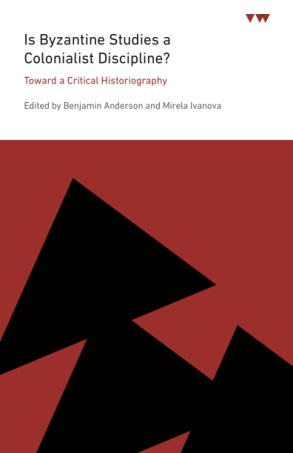In this interview, I discuss with Anthony the topic of the “idea of Europe” and the complex relationship of western Europe and the (eastern) Roman Empire, later called Byzantium. This conversion explores anti-Greek sentiments found in the west, which have their origins in ancient Rome. Interestingly, we learn how anit-Greek sentiment influenced the Erasmian pronunciation of ancient Greek.
This conversation is inspired by a chapter that Anthony wrote in Is Byzantine Studies a Colonialist Discipline? titled The Price of Admission, which touched on topics discussed in this episode.
Anthony Kaldellis’ research explores the history, culture, and literature of the east Roman empire from antiquity to the fifteenth century. An earlier phase of it focused on the reception of ancient Hellenic culture, for example on how authors conceived their projects in relation to classical models (Procopius of Caesarea, 2004), as well as the history of identities (Hellenism in Byzantium, 2007), monuments (The Christian Parthenon, 2009), and genres (Ethnography after Antiquity, 2013). A second phase brought to light the enduring Roman matrices of Byzantine life and thought, focusing on its political sphere (The Byzantine Republic, 2015) and ethnic identities (Romanland: Ethnicity and Empire in Byzantium, 2019). He has translated into English the works of many medieval Greek writers, such as Prokopios, Genesios, Psellos, Attaleiates, and Laonikos Chalkokondyles. His own monographs have been translated into other modern languages, including Turkish, French, Romanian, Russian, and Greek. In 2019, he created the first academic podcast for his field, Byzantium & Friends. He has just finished a new, comprehensive history of east Rome from Constantine the Great to Mehmed Fatih, which embeds social, economic, religious, and demographic developments within a lively narrative framework.
Recent Publication
The New Roman Empire: A History of Byzantium
In recent decades, the study of the Eastern Roman Empire, also known as Byzantium, has been revolutionized by new approaches and more sophisticated models for how its society and state operated. No longer looked upon as a pale facsimile of classical Rome, Byzantium is now considered a vigorous state of its own, inheritor of many of Rome's features, and a vital node in the first truly globalized world.
The New Roman Empire is the first full, single-author history of the eastern Roman empire to appear in over a generation. Covering political and military history as well as all the major changes in religion, society, demography, and economy, Anthony Kaldellis's volume is divided into ten chronological sections which begin with the foundation of Constantinople in 324 AD and end with the fall of the empire to the Ottoman Turks in the fifteenth century. The book incorporates new findings, explains recent interpretive models, and presents well-known historical characters and events in a new light.














Share this post